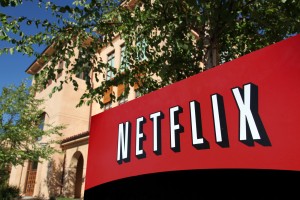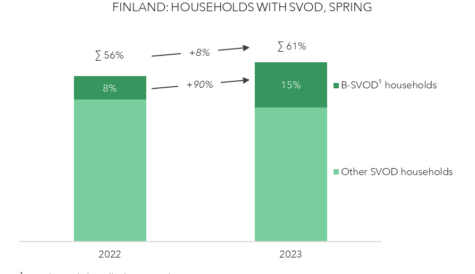
After more than 40 years of operation, DTVE is closing its doors and our website will no longer be updated daily. Thank you for all of your support.
Netflix calls on FCC to probe data caps
 Netflix has called on the US Federal Communications Commission (FCC) to investigate whether data caps imposed by service providers are holding back the development of OTT TV services such as its own.
Netflix has called on the US Federal Communications Commission (FCC) to investigate whether data caps imposed by service providers are holding back the development of OTT TV services such as its own.
In a written response to the FCC’s call for comments on ways to accelerate the deployment of advanced telecom services in the US, Netflix urged the commission to “evaluate the effects that broadband caps have on the deployment of advanced telecommunications capability”.
Arguing that premium online video and internet television services are now “at the centre of a consumer’s expectation for what broadband connections can deliver”, the subscription VOD provider said that data caps and usage-based pricing models “discourage a consumer’s consumption of broadband, and may impede the ability of some households to watch Internet television in a manner and amount that they would like”.
Netflix said that the FCC should take the view that any kind of data caps on fixed-line networks and low data caps on mobile networks “may unreasonably limit Internet television viewing” and are therefore inconsistent with Section 706 of the 1996 Telecommunications Act, that requires the commission to determine “whether advanced telecommunications capability is being deployed to all Americans in a reasonable and timely fashion”.
Netflix said that a 300GB monthly data cap was currently the minimum to meet the OTT TV needs of average Americans, and that even this relatively high cap did not account for other internet activities such as downloading games and apps. It said that demand for more data could only grow as 4K TV services come on stream.
The streaming video service argued in its submission that “data caps on fixed-line networks do not appear to serve a legitimate purpose” as they are ineffective as a traffic management tool, and that consumers already pay more for higher data speed tiers of broadband.
Netflix also said that making online video service pay to be ‘zero rated’ – in other words, exempt from caps – gives ISPs an incentive to maintain artificially low caps in the first place.
The call for an end to data caps is the latest move by Netflix in its long-running struggle with US fixed-line broadband providers to ensure that subscribers have unhindered – and cheap – access to its service. Last year, Netflix expressed its strong satisfaction with the FCC’s move to reclassify broadband providers in a way that subjected them to much stronger net neutrality regulation.


